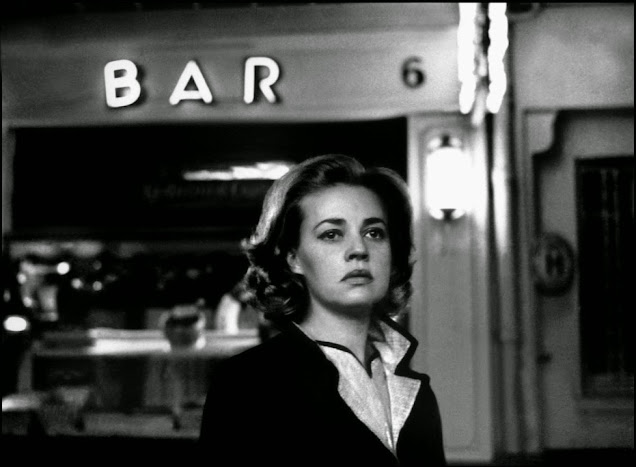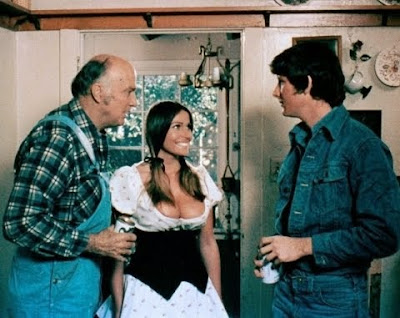Elevator to the Gallows
Becquet!
Tavernier is a crafty executive. Sharp dresser, dashing, lots of female companions. Also a lout and a cheat, but elegantly so. In the first minutes of the 1958 film ASCENSEUR POUR L'ECHAFAUD, or ELEVATOR TO THE GALLOWS, he will reveal himself to be a murderer. A plot hatched against his boss with assistance from the victim's wife Florence, his lover. There is to be a smooth getaway.
But Tavernier (Maurice Ronet) is careless. He inexplicably leaves a rope hanging outside of the office window. Later, exposed photographs will be his undoing as he and his paramour (Jeanne Moreau) are implicated in the crime. How could such an intelligent, industrious man, an ex-parachutist, and veteran of wars in Algeria and Indochina, be so sloppy? He is in fact trapped in an elevator for much of the film. The plot in director Louis Malle's first film is clever but far from airtight. Busy too, as there is a subplot involving a pair of young lovers who steal Tavernier's car (which was unlocked and the keys still in the ignition) and get involved in their own sticky situation where others end up dead. They too are careless, even botching their attempt at suicide.
The eventful screenplay exists, in my opinion, as mere business for Malle's true intentions. A skeleton upon which some lovely, piquant imagery is strewn. This is a movie of moods. Images. Moreau moving through Paris streets. Lovely location shooting. Through cafes and police stations. As iconic as it gets. And sounds. Miles Davis' sad trumpet bellows throughout ELEVATOR TO THE GALLOWS, so perfect to accompany the tragedy.
Film editor Léonide Azar's cross cutting among Tavernier in the lift, Moreau's weary wanders, and Louis (Georges Poujouly) and Veronique's (Yori Bertin) joyride is seamless and masterful. The pacing is deliberate, even as the story's third act - the inevitable fallout - unfolds. Malle's direction is admirably confident for a first-timer, particularly during the scene with the District Attorney. He positions and moves everything deftly to create what amounts to more than just another "crime doesn't pay" tale. He's created a poem that details the inevitable fall of the greedy and aimless. Even if Malle had decided to dispense with dialogue and allowed only Miles to fill the soundtrack, it would've still been a noir for the ages; it's that evocative.



Comments